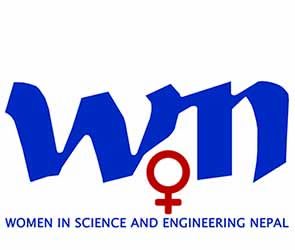Perception surveys on gender equality
WISE Nepal has been conducting perception surveys on gender barriers in STEM among STEM professionals, students both men and women of different age groups since 2014. The findings and briefs of the survey reports are available in the link below:
- WiseNepal-2017-GMRuralTransportNepalTransformativeChanges-FinalReport-AsCAP-NEP2044D-171220.pdf
- WiseNepal-2017-GMTProjectsinNepal-PolicyBrief-NEP2044D-171115.pdf
- Report on Gender Barriers in STEM* in Africa, Asia and the Pacific : The 2018 survey for Science and Engineering Young & Future Professionals in Africa, Asia and the Pacific Nations (APNN & ARN)_For respondents of age 19~30.
Gender and Transport Networked Research
WISE Nepal conducted a networked research on gender and transport in 2016 -17. The research entitled Gender Mainstreaming in Rural Transport Projects in Nepal: Transformative Changes in Households and Community Levels was part of Research in Community Access Partnership (ReCAP) Programme funded by Department for International Development (DFID) of UKAID, implemented and managed by Cardno Merging Markets UK. Ltd. The research was conducted 7 countries of Asia (Nepal) and Africa (Ethiopia, Kenya, Ghana, Liberia, Sierra Leone and Tanzania). A qualitative method focusing on immersion technology using a Reality Check Approach (RCA) was used in this research.
Links to Report and Policy brief of research in Nepal conducted by WISE Nepal can be found in:
- WiseNepal-2017-GMTProjectsinNepal-PolicyBrief-NEP2044D-171115
- WiseNepal-2017-GMRuralTransportNepalTransformativeChanges-FinalReport-AsCAP-NEP2044D-171220
International Conferences on Gender and Transportation
WISE Nepal has been invited to share the research findings on gender and transport at various transport policy and practitioners forum in Asia-Pacific and Africa. WISE Nepal shares experiences of how gender mainstreaming in transport projects have positively benefited women from different perspectives – from participation in transport planning committees, gaining employment in the projects, being users of transport facilities etc. WISE Nepal shares that there are many barriers that inhibits women to fully participate and benefit from the transport projects and interventions, many of which can be addressed by making special provisions for women – for e.g. sharing household work by other family members so that she can utilize spare time for participation in development works, provisions of flexible working hours in the projects, equal pay scale and appropriate trainings which are tailored to the needs of women workers. WISE Nepal in its research recommendation also stresses why transport projects will have to be looked at from the gender lens.
WISE Nepal presented its initial findings of the research in the Ministerial level conference of Asia and Pacific countries in the transport sector held in Laos, organized by UN and facilitated by ADB’s sustainable transport programme. The final findings of the research was presented in the Africa and Asia regional countries regional meeting of the ReCAP partner countries, that was held in Kampala, Uganda in 2018.
